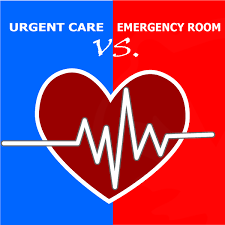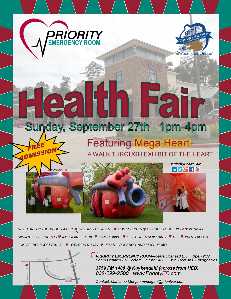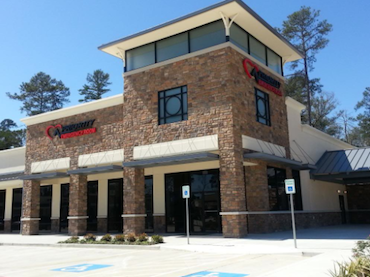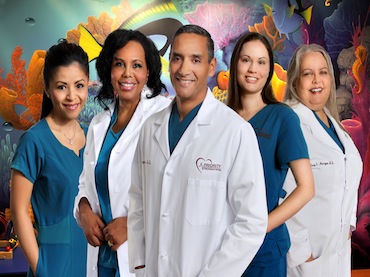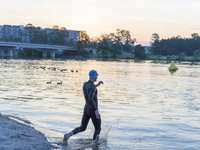- Sections :
- Crime & Public Safety
- Restaurants & Food
- Sports
- More
10 reasons you might visit an emergency room this summer
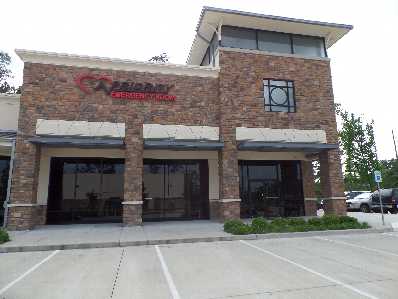
THE WOODLANDS, Texas - We all look forward to the summer months when we spend more time outdoors, basking in the sun, splashing in the pool and enjoying the longer days Mother Nature brings every year. While we flock to all these fun, outdoor activities, we don’t think of the hazards that may occur during the hot, sunny months. In fact, summer is a busy time for emergency rooms. In most of these cases, prevention is a matter of taking simple precautions. Take a look at some of the most common reasons for ER visits.
10. Food Poisoning - Foodborne illness peaks during the summer due to outdoor activities. Aunt Nelly’s potato salad left out for too long can wreak havoc on the gastrointestinal system. To avoid this, don’t leave food out more than an hour and serve foods that don’t contain eggs, mayonnaise or dairy. Keep cold foods cold, and hot foods hot to avoid food poisoning.
9. Dehydration, sunburn and heat-related illness - When you’re out in the sun for hours, it is especially important to wear sunscreen and keep hydrated when performing physical activities like swimming, gardening and playing sports. We may think if we are in the water, we don’t get dehydrated, but swimming and water sports are physically demanding and strenuous, and cause the body to sweat. Because we are in the water, we may not notice our own perspiration and that is why it’s even more important to drink plenty of fluids. Cramping is a sign of dehydration and can be a dangerous consequence, especially in open water.
Young children, the elderly and chronically ill people are especially susceptible to heat stroke. Heatstroke occurs when your body temperature rises rapidly, and you're unable to cool down. It can be life-threatening by causing damage to your brain and other vital organs. It may be caused by strenuous activity in the heat or by being in a hot place for too long. Take care to drink plenty of fluids, stay in the shade or better yet, seek an air-conditioned environment during high-temperature weather.
Severe sunburn can encompass dehydration, heat stroke and the pain associated with sunburn. All these conditions can be severe enough to warrant emergency medical treatment. Avoid trouble by drinking fluids, wearing and reapplying sunscreen, avoiding the sun during the hottest part of the day and remaining in the shade as much as possible. Wearing sun protective clothing and wide-brimmed hats is a good way to prevent excessive sun exposure.
8. Gardening - Even something as leisurely as gardening can have hazardous consequences. Between sunburn and dehydration, gardeners also run the risk of lacerations, trips and falls over tools and equipment, as well as reptile and bug bites. Be especially careful when children are present as gardening tools are sharp. Use caution if using any chemicals like weed killer, as they are poisonous. Reaching down into weeds and lifting rocks can also surprise the casual gardener when bugs and reptiles strike back. Use gloves to avoid bug bites and thorns. By staying hydrated, wearing a light, long-sleeved shirt and using caution around tools, your garden should flourish!
7. Beach and Camping Equipment - A well-planned camping weekend can quickly smoke out the fun when lacerations to hands and face occur from putting up canopies and setting up equipment. Also, fractures from tripping over equipment and back strains from heaving lifting can ruin the weekend. It’s always a good idea to use utility gloves when erecting canopies and be careful where you leave your tools and stakes. Having a well-stocked first aid kit is also a good idea, especially if you are traveling to a remote location.
6. Guns - From BB guns to rifles, most common ER injuries are to face, arms, eyes fingers and feet. Keep guns locked away, use protective eye equipment and keep firearms and toy guns out of children’s reach. Teach children not to touch a gun and if they find or see one, find an adult. And while you think BB guns are harmless, ER’s see approximately 30,000 BB and pellet gun injuries each year. A BB travels at 500 fee/second while a bone can fracture at 200 feet/second. Teach gun safety and always exercise caution with all guns and rifles, including BB and pellet.
5. BBQ’s - Grilling is as American as apple pie and during the summer, most people are eating their meals prepared on the grill. But when you’re dealing with fire and fuel, the risks for burns increase significantly. Outdoor grilling can often result in smoke inhalation, burns to the hands, legs and face from lighter fuel. By making sure you have enough fuel to start the fire, you are less likely to add fuel later “to get it going”. When cooking on a propane grill, do not relight if the fuel has been on for a period of time. This is when and why most serious burn injuries occur. Grilling safety tips also include placing your grill at least 10 ft from a dwelling, always grill outdoors and keep the area around the grill free of obstacles that may cause guests to trip.
4. Mowers - Even the weekly chore of mowing the lawn needs safety attention! Flying blades can cause severe lacerations to the limbs, and flying debris can impact the eyes. During the hot months, people are tempted to do their yard chores without shirts or shoes, leaving themselves vulnerable to mower injuries. Wear shoes, eye protection and clothing to minimize impact from debris.
The next activities are the top three activities that could send you to the emergency room.
3. Trampolines - What starts out as fun and a good release of energy can quickly turn into a bounce to the ER. Common injuries in all age groups include sprains, strains, and contusions. Falls from a trampoline can potentially be catastrophic. Most trampoline injuries occur when multiple people are jumping. And it’s not just young kids, older kids also sustain injuries because they are bigger in stature, they are jumping higher, resulting in more forceful collisions and falls. The American Academy of Pediatrics advises against trampolines for home or recreational use because of the number of injuries that occur yearly.
2. Pools - There is a reason NO running and NO diving are listed under pool rules ! You’re pretty much guaranteed an ER visit as slippery decks, diving and jumping into pools may result in head or neck injuries and broken limbs. Also, drownings and near drownings increase due to unsecured pools and poor supervision. If you have small children, keep your eyes on them at al times when you're near the water, whether at the pool , beach or lake. Take the time to take a CPR class and learn how to administer First Aid. Stop by Priority ER and pick up a free WATER WATCHER badge. It adds another layer of prevention to your summer get togethers.
Another danger is the use of alcohol around water. Adults are often celebrating around the pool and too much alcohol can hinder your inhibitions. People are more likely to do things they otherwise would not attempt. Dangerous dives and acrobatics can result in severe injuries.
1. Skateboards and Bikes - Spending all that time perfecting those tricks can often result in fractures or head injuries. According to the CDC,
271,099 children were seen in emergency rooms for injuries from riding bikes in 2012.
80,040 children ages 19 and under had skateboard?related injuries, and
5,283 had skating? related injuries.
More children ages 5 to 14 are seen in emergency departments for injuries related to biking than any other sport. Wearing a helmet and protective gear is the single most important item when riding on wheels.
By taking some precautions and being watchful, you can enjoy the summer fun and prevent accidents! Have a safe summer!
Priority ER is open 24/7 and stands ready for any emergency. We are conveniently located in Alden Bridge, at the intersecion of 1488/Kuykendahl behind CVS and across from HEB.
Priority ER is a state-licensed emergency room, staffed with board-certified ER physicians.
The information contained in this article, post and/or Web site should not be used as a substitute for the medical care and advice of your primary care physician. If you feel your life is in danger, dial 911 or visit your nearest emergency room.

